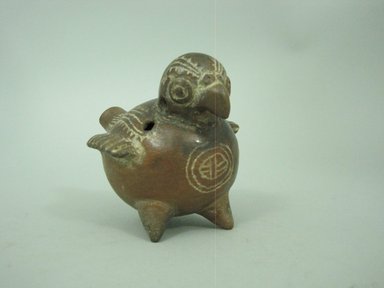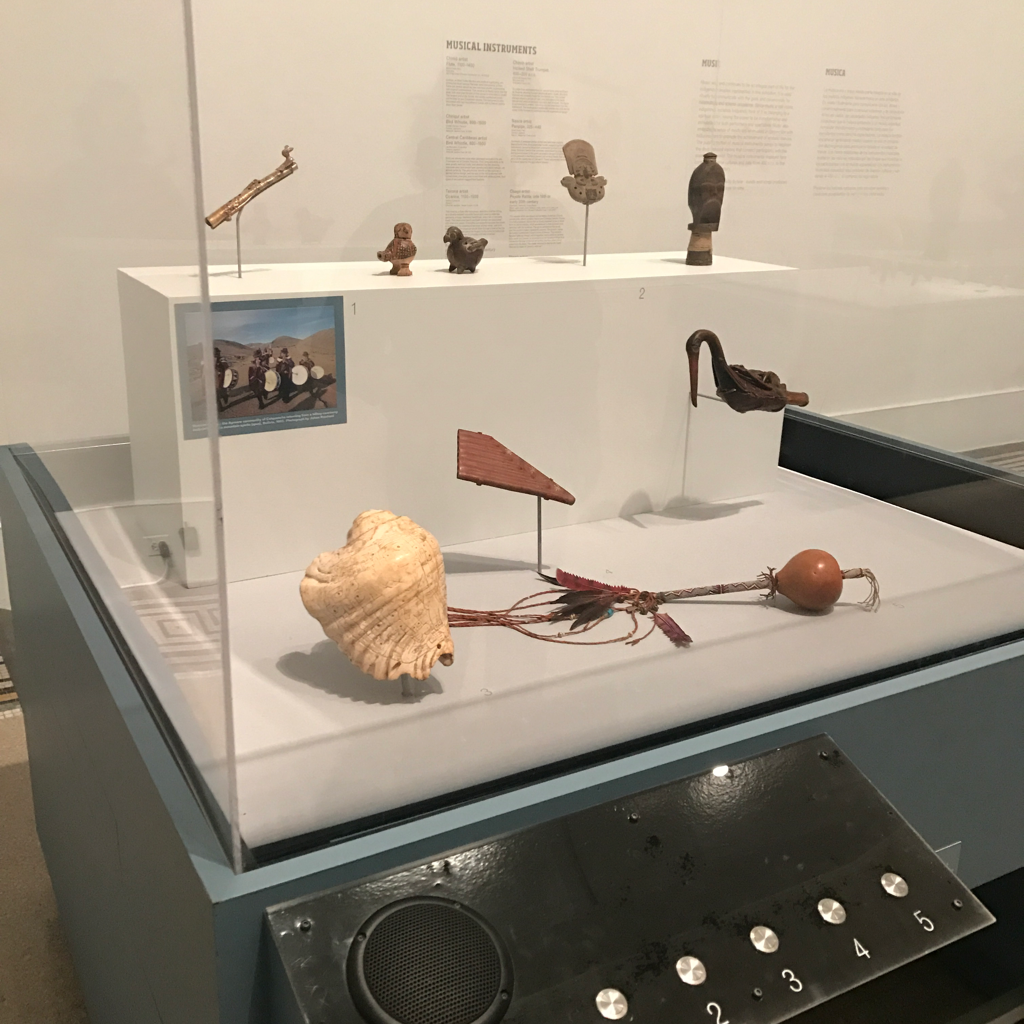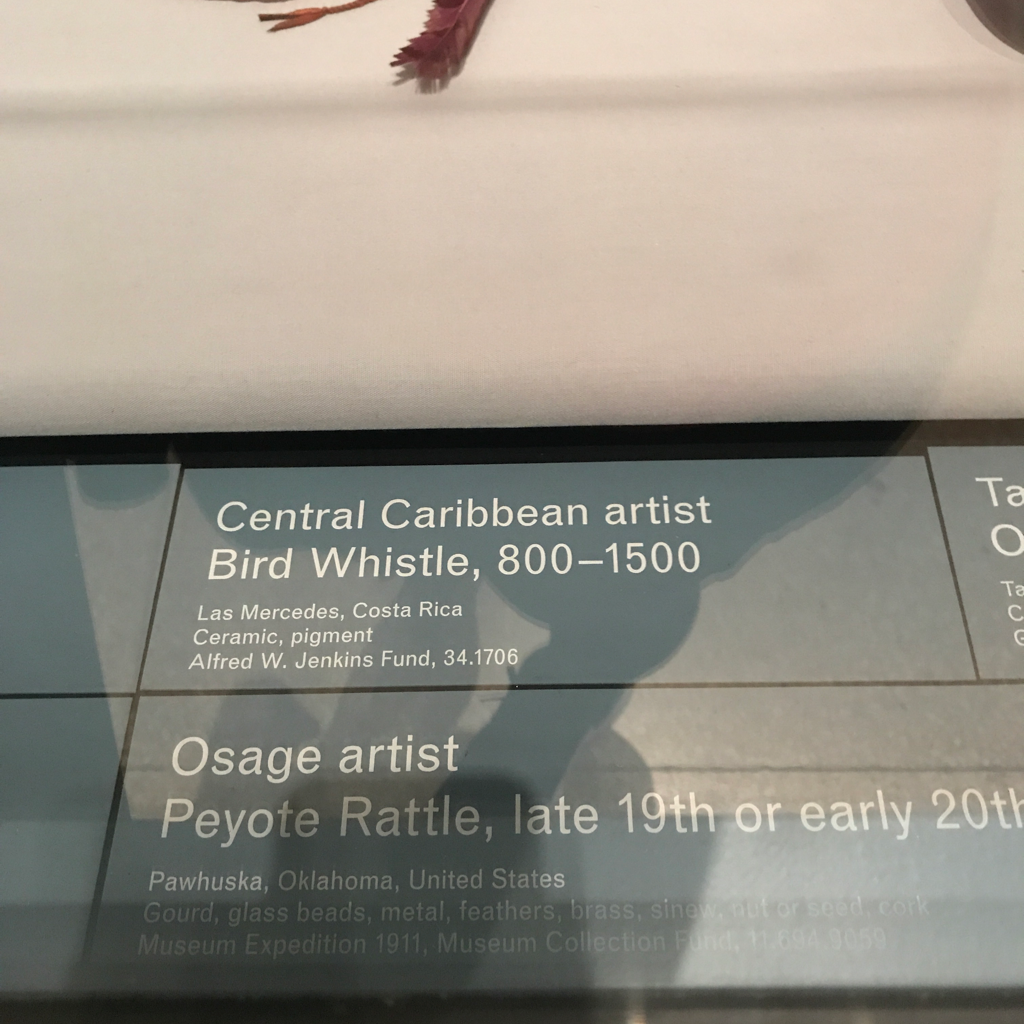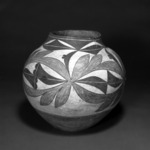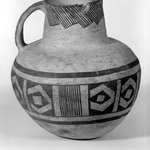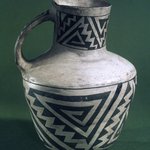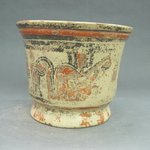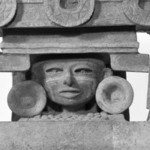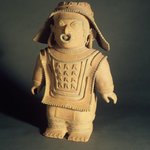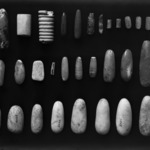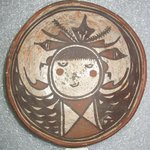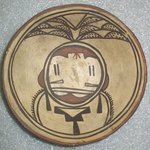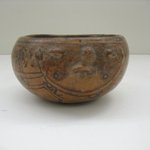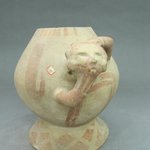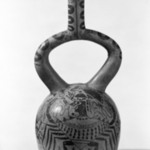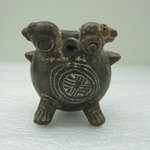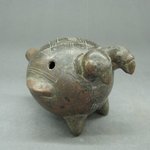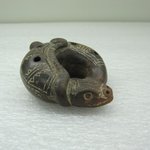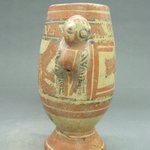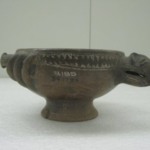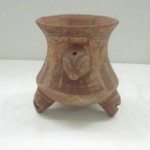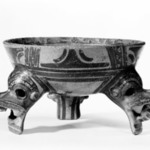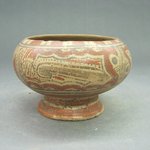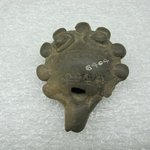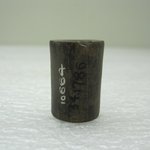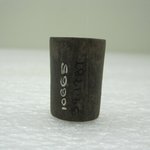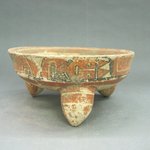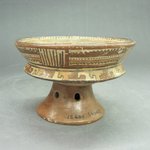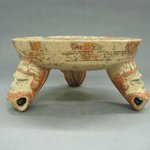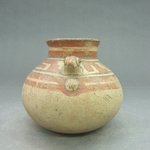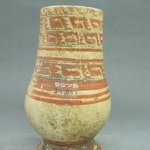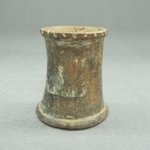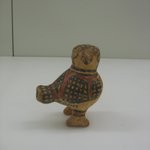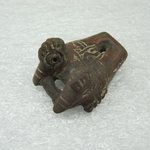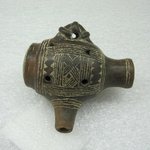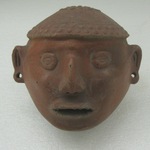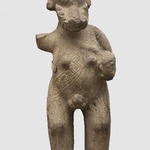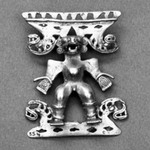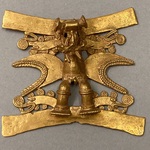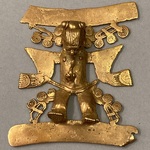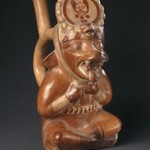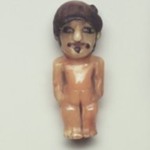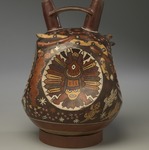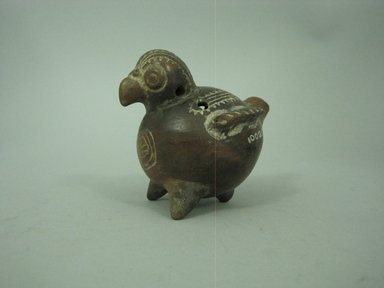

Whistle in the Form of a Bird, 800–1350. Ceramic, pigment, 3 1/8 x 3 x 4 in. (8 x 7.6 x 10.2 cm). Brooklyn Museum, Alfred W. Jenkins Fund, 34.1706. Creative Commons-BY (Photo: Brooklyn Museum, CUR.34.1706_view1.jpg)
Whistle in the Form of a Bird
Arts of the Americas
Birds are among the most often portrayed animals in the pre-Columbian art of Central America. Their song and ability to fly were greatly admired traits, and whistles like the charming examples seen here would have reproduced a bird’s melodic call almost perfectly. The polychrome whistle on the right has a painted lattice design, and the one on the left is adorned with incised lines, triangles, and circles filled with white pigment. Both types of decoration suggest bird feathers.
Los pájaros están entre los animales más representados en el arte precolombino de América Central. Sus canciones y habilidad para volar eran cualidades enormemente admiradas, y silbatos como los encantadores ejemplos que se aprecian aquí pueden haber reproducido el sonido melodioso de los pájaros casi a la perfección. El silbato policromo a la derecha tiene un diseño de encaje pintado, y el de la izquierda está adornado con líneas incisas, triángulos, y círculos rellenos con pigmento blanco. Ambos tipos de decoración sugieren plumas de pájaros.
Los pájaros están entre los animales más representados en el arte precolombino de América Central. Sus canciones y habilidad para volar eran cualidades enormemente admiradas, y silbatos como los encantadores ejemplos que se aprecian aquí pueden haber reproducido el sonido melodioso de los pájaros casi a la perfección. El silbato policromo a la derecha tiene un diseño de encaje pintado, y el de la izquierda está adornado con líneas incisas, triángulos, y círculos rellenos con pigmento blanco. Ambos tipos de decoración sugieren plumas de pájaros.
MEDIUM
Ceramic, pigment
DATES
800–1350
DIMENSIONS
3 1/8 x 3 x 4 in. (8 x 7.6 x 10.2 cm) (show scale)



COLLECTIONS
Arts of the Americas
ACCESSION NUMBER
34.1706
CREDIT LINE
Alfred W. Jenkins Fund
EXHIBITIONS
MUSEUM LOCATION
This item is not on view
CAPTION
Whistle in the Form of a Bird, 800–1350. Ceramic, pigment, 3 1/8 x 3 x 4 in. (8 x 7.6 x 10.2 cm). Brooklyn Museum, Alfred W. Jenkins Fund, 34.1706. Creative Commons-BY (Photo: Brooklyn Museum, CUR.34.1706_view1.jpg)
IMAGE
overall, CUR.34.1706_view1.jpg. Brooklyn Museum photograph, 2011
"CUR" at the beginning of an image file name means that the image was created by a curatorial staff member. These study images may be digital point-and-shoot photographs, when we don\'t yet have high-quality studio photography, or they may be scans of older negatives, slides, or photographic prints, providing historical documentation of the object.
RIGHTS STATEMENT
Creative Commons-BY
You may download and use Brooklyn Museum images of this three-dimensional work in accordance with a Creative Commons license. Fair use, as understood under the United States Copyright Act, may also apply.
Please include caption information from this page and credit the Brooklyn Museum. If you need a high resolution file, please fill out our online application form (charges apply).
For further information about copyright, we recommend resources at the United States Library of Congress, Cornell University, Copyright and Cultural Institutions: Guidelines for U.S. Libraries, Archives, and Museums, and Copyright Watch.
For more information about the Museum's rights project, including how rights types are assigned, please see our blog posts on copyright.
If you have any information regarding this work and rights to it, please contact copyright@brooklynmuseum.org.
RECORD COMPLETENESS
Not every record you will find here is complete. More information is available for some works than for others, and some entries have been updated more recently. Records are frequently reviewed and revised, and we welcome any additional information you might have.

